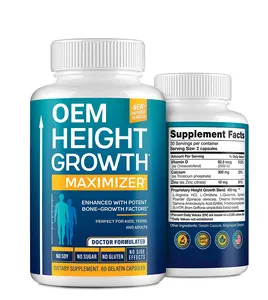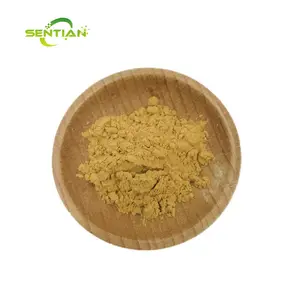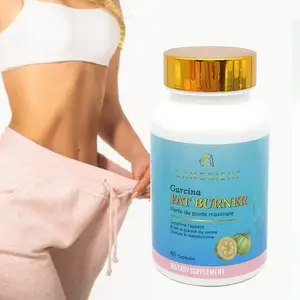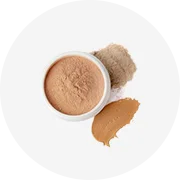ได้รับความนิยมในอุตสาหกรรมของคุณ






ฟิล์มพลาสติกโพลีเอทิลีนใสสำหรับเรือนกระจกป้องกันรังสียูวี2 00ไมครอน6Mil
IDR 3,593 - IDR 4,572
การสั่งซื้อขั้นต่ำ: 5150 ตารางเมตร

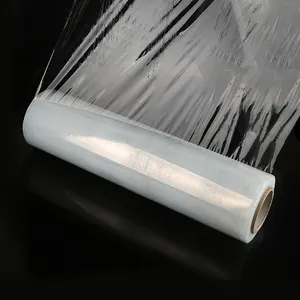

ราคาโรงงานพาเลทยืดห่อ,พาเลทโปร่งใส Pe หล่อฟิล์มยืดหดห่อ Strech ฟิล์มยืด
IDR 8,164 - IDR 24,492
การสั่งซื้อขั้นต่ำ: 1000 กิโลกรัม

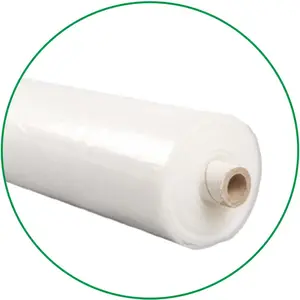





ฟิล์มโพลี200ไมครอนกันรังสียูวีที่คลุมโรงเรือนพลาสติกป้องกันรังสี UV
IDR 3,593 - IDR 4,572
การสั่งซื้อขั้นต่ำ: 5150 ตารางเมตร







ฟิล์มยืดพาเลทฟิล์มยืดมือ 23 ไมคริ้วรีไซเคิลแบบกําหนดเองสําหรับการขนส่ง
IDR 8,164 - IDR 13,063
การสั่งซื้อขั้นต่ำ: 1000 กิโลกรัม






ถุงฟิล์มป้องกันกล้วย HDPE เพื่อการเกษตร ฟิล์มป้องกันพลาสติกสําหรับพืช มีบริการตัดตามสั่ง
IDR 4,899 - IDR 11,430
การสั่งซื้อขั้นต่ำ: 10000 ชิ้น






กระดาษอาหารพิมพ์ดิจิตอลไนลอนขนมกินมันฝรั่งกล้วยมะพร้าวมันฝรั่งทอดฟิล์มบรรจุภัณฑ์ถุงกระเป๋าฟิล์มยืด PE
IDR 21,063 - IDR 25,962
การสั่งซื้อขั้นต่ำ: 100 กิโลกรัม






พลาสติกโพลีเอทิลีนแบบเจาะรูสีน้ำเงินเคสทรงกล้วย
IDR 3,266 - IDR 4,082
การสั่งซื้อขั้นต่ำ: 5000 ตารางเมตร






อาหารกล้วยมันฝรั่งทอดบรรจุภัณฑ์วัสดุลามิเนตม้วนฟิล์มพลาสติกขายส่งที่กำหนดเองพิมพ์ม้วนฟิล์ม
IDR 41,310 - IDR 59,107
การสั่งซื้อขั้นต่ำ: 100 กิโลกรัม






ม้วนฟิล์มโพลีเอสเตอร์เกรดอาหารม้วนบรรจุภัณฑ์อัตโนมัติฟิล์มโลหะผสมพลาสติกแพนเค้กม้วนพิมพ์ฟิล์ม
IDR 61,229 - IDR 67,760
การสั่งซื้อขั้นต่ำ: 500 กิโลกรัม





ถุงกล้วยฟิล์มป้องกันรังสียูวีย่อยสลายได้ 4% ถุงพลาสติก HDPE การเกษตรตัดตามขนาดถุงป้องกันผลไม้
IDR 6,532 - IDR 13,063
การสั่งซื้อขั้นต่ำ: 10000 ชิ้น
การค้นหาที่เกี่ยวข้อง:
ฟิล์มป้องกัน pe 70umฟิล์มป้องกันพื้นผิวสำหรับ windowesฟิล์มป้องกันกาว pe มืออาชีพฟิล์มป้องกันสำหรับผนังฟิล์มป้องกันสีน้ำเงินเอเชียฟิล์มป้องกัน pe แบบมีกาวในตัวฟิล์มป้องกัน300ไมครอนฟิล์มป้องกันกาว sgs peฟิล์ม cpp alฟิล์มป้องกัน pe สำหรับตู้เย็นฟิล์มป้องกันที่ชัดเจน3m สำหรับรถยนต์ฟิล์ม sunkaฟิล์มความร้อนสีน้ำเงินฟิล์มป้องกันสีเขียวชิงเต่าฟิล์มป้องกันสำหรับพรมรถยนต์





โรงงานส่งออกฝาครอบป้องกันกล้วยถุงพลาสติก HDPE สําหรับบริการแปรรูปประเภทฟิล์มป้องกันกล้วย
IDR 4,899 - IDR 11,430
การสั่งซื้อขั้นต่ำ: 10000 ชิ้น





ถุงกล้วย PP ย่อยสลายได้เป็นมิตรกับสิ่งแวดล้อมเพื่อการเกษตรฝาครอบฟิล์มป้องกันวัสดุ HDPE ตัดพลาสติก
IDR 4,899 - IDR 11,430
การสั่งซื้อขั้นต่ำ: 10000 ชิ้น






ถุงป้องกันผลไม้เกษตร Pp นอนวูฟเวนพืชสวนกล้วยป้องกันถุงผ้าไม่ทอเป็นมิตรกับสิ่งแวดล้อม
IDR 21,227
การสั่งซื้อขั้นต่ำ: 1 กิโลกรัม






ม้วนฟิล์มเบาะลมฟอง HDPE มะระขนาดใหญ่ วัสดุบรรจุป้องกันสําหรับการขนส่งผลไม้
IDR 179,605 - IDR 244,916
การสั่งซื้อขั้นต่ำ: 100 ม้วน





ม้วนฟิล์มกันกระแทกขนาดใหญ่40x32ซม. สำหรับการขนส่งผลไม้
พร้อมส่ง
IDR 168,176 - IDR 244,916
การสั่งซื้อขั้นต่ำ: 60 ม้วน
การจัดส่งต่อชิ้น: IDR 134,051






ที่กำหนดเองวัชพืชอุปสรรคบ้านสีเขียวเพาะป้องกันน้ำค้างแข็งผลไม้ป้องกันไม่ทอผ้าผู้ผลิต
IDR 27,758 - IDR 31,023
การสั่งซื้อขั้นต่ำ: 1000 กิโลกรัม






ม้วนผ้าไม่ทอ PP ป้องกันรังสียูวีน้ําหนักเบาเป็นมิตรกับสิ่งแวดล้อมสําหรับถุงกล้วย
IDR 20,410 - IDR 23,676
การสั่งซื้อขั้นต่ำ: 5000 กิโลกรัม






พลาสติกใสสองแผ่นฟิล์มลามิเนตแบบมีรูป้องกันการกระแทกของผลไม้สำหรับเก็บผลไม้สด
IDR 654 - IDR 980
การสั่งซื้อขั้นต่ำ: 10000 ชิ้น





ถุงพลาสติกกล้วยสําหรับป้องกันการปลูกผลไม้ ผลิตภัณฑ์พลาสติกเพื่อการเกษตรส่งออกไปยังอเมริกากลาง
IDR 4,899 - IDR 11,430
การสั่งซื้อขั้นต่ำ: 10000 ชิ้น






ถุงป้องกันผลไม้ผ้าไม่ทอโพรพิลีนป้องกันรังสียูวี TNT ถุงป้องกันกล้วยผ้าปกถุงนอนวูฟเวน
IDR 21,227
การสั่งซื้อขั้นต่ำ: 1 กิโลกรัม






ม้วนผ้าไม่ทอ PP ป้องกันรังสียูวีน้ําหนักเบาเป็นมิตรกับสิ่งแวดล้อมสําหรับถุงกล้วย
IDR 20,410 - IDR 23,676
การสั่งซื้อขั้นต่ำ: 5000 กิโลกรัม











PP สปันบอนผ้านอนวูฟเวนการเกษตรกล้วยผลไม้ถุงป้องกันการเกษตรนอนวูฟเวน
IDR 21,227
การสั่งซื้อขั้นต่ำ: 1 กิโลกรัม





พรุนพลาสติกโพลีเอทิลีนกล้วยถุงป้องกันกล้วยพวงผู้จัดจำหน่าย
IDR 6,532 - IDR 13,063
การสั่งซื้อขั้นต่ำ: 10000 ชิ้น












2.5กรัม/เมตรเพิ่มการป้องกันรังสียูวี PP สายมัดมัดมัดฟิล์มแบบแยกกล้วย
IDR 27,758 - IDR 33,472
การสั่งซื้อขั้นต่ำ: 500 กิโลกรัม






แผ่นฟิล์มแยกสำหรับงานเกษตรทำจากเส้นใยกล้วย PP เกลียวบิดได้พร้อมรังสียูวี
IDR 32,656 - IDR 37,554
การสั่งซื้อขั้นต่ำ: 1000 กิโลกรัม






22 Gsm เกษตรพืชปกย่อยสลายได้ PP ไม่ทอพลาสติกพรุนกล้วยมะม่วงวันที่ป้องกันปกกระเป๋าเครื่องทำ
IDR 97,966,212 - IDR 244,915,530
การสั่งซื้อขั้นต่ำ: 1 ชุด




ถุงคลุมกล้วยโพลีโพรพิลีนใหม่ถุงผ้าไม่ทอ spunbond ถุงป้องกันแบบมีรูพรุน
IDR 23,349 - IDR 24,655
การสั่งซื้อขั้นต่ำ: 1000 กิโลกรัม






โรงงานเอาท์เล็ทกล้วยคริสตัล5D ทันสมัยหรูหรางานศิลปะผนังพอร์ซเลนคริสตัลแบบนามธรรมสำหรับห้องนั่งเล่น
IDR 522,487 - IDR 669,436
การสั่งซื้อขั้นต่ำ: 2 ชิ้น






ฟิล์ม PP ป้องกันรังสี UV ขนาด2มม. สายพันเกลียวเชือกผูกกล้วยหรือมะเขือเทศในการเกษตรเรือนกระจก
IDR 27,758 - IDR 33,472
การสั่งซื้อขั้นต่ำ: 500 กิโลกรัม






อุปกรณ์ปาร์ตี้ที่กําหนดเองเด็กผู้หญิงเด็กเด็กสติ๊กเกอร์รอยสักฤดูร้อนเรื่องผักแอปเปิ้ลกล้วยแพร์ผลไม้แวววาวสติกเกอร์รอยสัก

IDR 1,307 - IDR 3,266
การสั่งซื้อขั้นต่ำ: 100 ชิ้น






Ceอนุมัติขนมขบเคี้ยวเล็กๆกล้วยกล้ามันฝรั่งมันฝรั่งทอดอุปกรณ์บรรจุภัณฑ์เนื้อกระตุกข้าวโพดคั่วมันฝรั่งทอดบรรจุเครื่อง
IDR 48,983,106 - IDR 81,638,510
การสั่งซื้อขั้นต่ำ: 1 ชุด
หมวดหมู่ยอดนิยม
เกี่ยวกับ ฟิล์มป้องกันสำหรับกล้วย
ฟิล์มป้องกันสำหรับกล้วย ไม่ใช่เรื่องใหม่สำหรับคนทั่วไปในปัจจุบันและไม่ถือว่าเป็นสิ่งต้องห้ามอีกต่อไป หากคุณกำลังมองหาความสุขสุดท้ายนี้คุณต้องตรวจสอบความยิ่งใหญ่ คอลเลกชัน ฟิล์มป้องกันสำหรับกล้วย ที่ Alibaba.com เหล่านี้ยั่วยวนและโค้ง ฟิล์มป้องกันสำหรับกล้วย คุ้มค่ากับเงินทุกบาทและมั่นใจว่าจะทำให้ค่ำคืนนี้พิเศษสำหรับคุณ ตุ๊กตาเหล่านี้มีลักษณะเหมือนจริงตั้งแต่ขนไปจนถึงปลายเท้าในทุกแง่มุม
ไม่ว่าคุณจะเป็นคนขี้เหงาที่กำลังมองหาคู่ชีวิตที่เหมือนมีชีวิตหรือคู่รักที่ต้องการเติมชีวิตชีวาให้กับชีวิตคุณสามารถใช้สิ่งเหล่านี้ได้ . ฟิล์มป้องกันสำหรับกล้วย สำหรับจุดไฟนั้น ที่งดงามเหล่านี้ ฟิล์มป้องกันสำหรับกล้วย สามารถปรับแต่งได้ตามความคาดหวังของคุณ น่าทึ่งเหล่านี้ ฟิล์มป้องกันสำหรับกล้วย มีให้เลือกทั้งชายและหญิงและทำจากซิลิโคนเกรดยาเพื่อความปลอดภัยในการใช้งาน รับตอนนี้และเพลิดเพลินไปกับค่ำคืนแห่งความหลงใหลและไฟ
Alibaba.com ขอเสนอสิ่งที่น่าทึ่งเหล่านี้ ฟิล์มป้องกันสำหรับกล้วย ในทุกรูปร่างขนาดและชาติพันธุ์ ไม่ว่าความต้องการของคุณสำหรับไฟล์. ฟิล์มป้องกันสำหรับกล้วย คุณสามารถหาได้ทั้งหมดบนไซต์ เหล่านี้ ฟิล์มป้องกันสำหรับกล้วย ได้รับการขึ้นรูปโดยช่างฝีมือที่ดีที่สุดและทุกรายละเอียดที่ซับซ้อนจะได้รับการตรวจสอบอย่างละเอียด ตุ๊กตาเหล่านี้มีดวงตาผมเล็บและส่วนอื่น ๆ ของร่างกายคล้ายกับคนในชีวิตจริง
Alibaba.com ให้บริการที่หลากหลาย ฟิล์มป้องกันสำหรับกล้วย ที่สามารถช่วยคุณซื้อผลิตภัณฑ์ที่เหมาะสมกับงบประมาณของคุณและข้อกำหนดอื่น ๆ ผลิตภัณฑ์เหล่านี้ปลอดภัยต่อการใช้งานได้รับการรับรองและเป็นมิตรกับสิ่งแวดล้อม มีคำสั่งซื้อ OEM สำหรับผลิตภัณฑ์เหล่านี้
ไม่ว่าคุณจะเป็นคนขี้เหงาที่กำลังมองหาคู่ชีวิตที่เหมือนมีชีวิตหรือคู่รักที่ต้องการเติมชีวิตชีวาให้กับชีวิตคุณสามารถใช้สิ่งเหล่านี้ได้ . ฟิล์มป้องกันสำหรับกล้วย สำหรับจุดไฟนั้น ที่งดงามเหล่านี้ ฟิล์มป้องกันสำหรับกล้วย สามารถปรับแต่งได้ตามความคาดหวังของคุณ น่าทึ่งเหล่านี้ ฟิล์มป้องกันสำหรับกล้วย มีให้เลือกทั้งชายและหญิงและทำจากซิลิโคนเกรดยาเพื่อความปลอดภัยในการใช้งาน รับตอนนี้และเพลิดเพลินไปกับค่ำคืนแห่งความหลงใหลและไฟ
Alibaba.com ขอเสนอสิ่งที่น่าทึ่งเหล่านี้ ฟิล์มป้องกันสำหรับกล้วย ในทุกรูปร่างขนาดและชาติพันธุ์ ไม่ว่าความต้องการของคุณสำหรับไฟล์. ฟิล์มป้องกันสำหรับกล้วย คุณสามารถหาได้ทั้งหมดบนไซต์ เหล่านี้ ฟิล์มป้องกันสำหรับกล้วย ได้รับการขึ้นรูปโดยช่างฝีมือที่ดีที่สุดและทุกรายละเอียดที่ซับซ้อนจะได้รับการตรวจสอบอย่างละเอียด ตุ๊กตาเหล่านี้มีดวงตาผมเล็บและส่วนอื่น ๆ ของร่างกายคล้ายกับคนในชีวิตจริง
Alibaba.com ให้บริการที่หลากหลาย ฟิล์มป้องกันสำหรับกล้วย ที่สามารถช่วยคุณซื้อผลิตภัณฑ์ที่เหมาะสมกับงบประมาณของคุณและข้อกำหนดอื่น ๆ ผลิตภัณฑ์เหล่านี้ปลอดภัยต่อการใช้งานได้รับการรับรองและเป็นมิตรกับสิ่งแวดล้อม มีคำสั่งซื้อ OEM สำหรับผลิตภัณฑ์เหล่านี้
